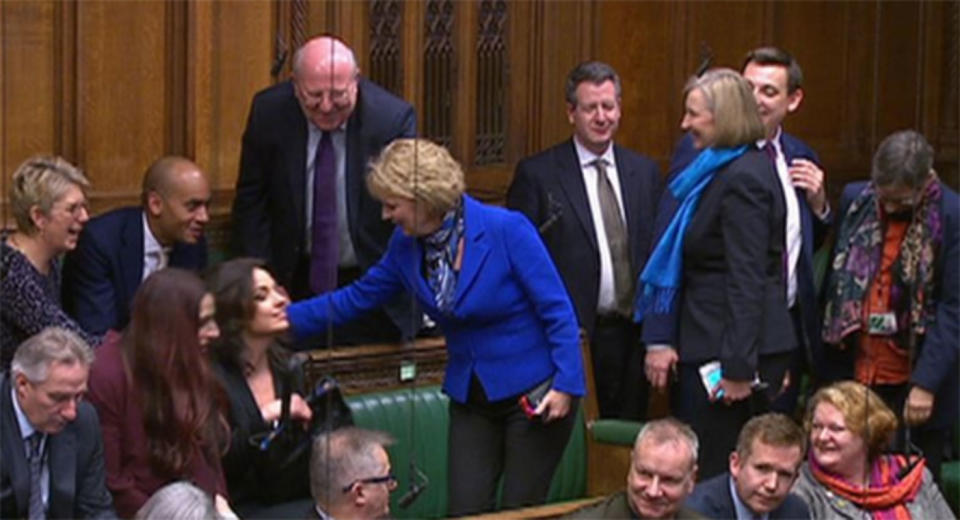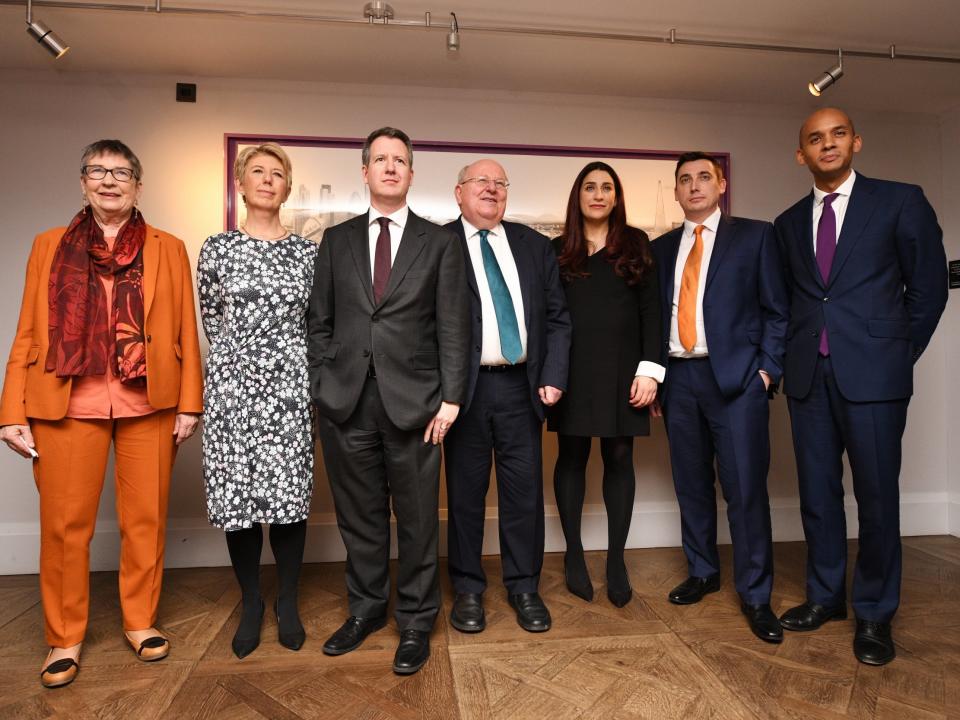Three Conservative MPs quit over May's 'disastrous handling of Brexit'

Three Conservative MPs have quit the party today and joined former Labour MPs in the new Independent Group.
Remain backing Tories Sarah Woolaston, Anna Soubry and Heidi Allen resigned the whip on Wednesday morning. The three are vocal critics of Brexit.
Speaking at a press conference the three MPs explained their decision to break away from the Tories.
Heidi Allen blamed Brexit and her former party’s approach to welfare reforms.
She said: “I can no longer represent a government and a party who can’t open their eyes to the suffering endured by the most vulnerable in society, suffering which we have deepened whilst having the power to fix.”

Sarah Woolaston blamed Theresa May’s refusal to rule out a no-deal Brexit.
She said: “I think that what we now see is the party, that was once the most trusted on the economy and business, is now marching us to the cliff-edge of a no-deal Brexit.”
It is with a heavy heart I have today resigned from the Conservative Party. pic.twitter.com/q0j7m5ylUX
— Anna Soubry MP (@Anna_Soubry) February 20, 2019
Anna Soubry urged other MPs to join the caucus of former Tory and Labour MPs. She said that the battle for the Conservative party was ‘over’.
“The right wing, the hardline anti-EU awkward squad that have destroyed every leader for the last 40 years are now running the Conservative Party from top to toe. They are the Conservative Party,” she said.
“Dear friends and now former colleagues who share those one-nation values and principles will of course today deny it, but I believe in their heads and in their hearts they know it’s over.”
Seven Labour MPs quit their party on Monday to form The Independent Group – a coalition of MPs who will vote together in the Commons but who are not an official political party.
Another Labour MP, Joan Ryan, quit last night to join the group, blaming Jeremy Corbyn’s ‘dereliction of duty’ in failing to tackle anti-Semitism within Labour.

Mrs May said: “I am saddened by this decision – these are people who have given dedicated service to our party over many years, and I thank them for it.
“Of course, the UK’s membership of the EU has been a source of disagreement both in our party and our country for a long time. Ending that membership after four decades was never going to be easy.
“But by delivering on our manifesto commitment and implementing the decision of the British people we are doing the right thing for our country. And in doing so, we can move forward together towards a brighter future.
“I am determined that under my leadership the Conservative Party will always offer the decent, moderate and patriotic politics that the people of this country deserve.”
What does it mean for the Conservative Party?
The departure erodes Theresa May’s already fragile hold on power in Parliament as she battles to drum up support for her unpopular Brexit deal.
The split is the culmination of years of infighting within the Conservative Party over Brexit as Eurosceptics push for a hard Brexit and Remainers battle for a closer relationship with the EU.
The Prime Minister now has a working majority of just eight, including DUP MPs on whom she relies for support.
Political scientists professor John Curtice suggested the departure of the three Remainers could push to PM towards a harder Brexit.
He said: “Now she has lost [the three MPs], she certainly isn’t going to have any further incentive to move in the direction of a softer Brexi tand probably feels even more impelled to try and come up with something on her Brexit deal that will keep the ERG happy that the EU will buy into.”
What does it mean for Labour?
The departures from Labour are a clear sign to Jeremy Corbyn that his MPs do not such his approach to Labour.
He stands accused of colluding with the Tories to push through their hard Brexit and is under growing pressure to back a second referendum.
Professor Curtis said: “These developments do potentially put pressure on Jeremy Corbyn.
“And they say ‘Look, we know you need to hang on to your Leave voters but at the end of the day you need to understand that there are far more strong Remain voters inside the Labour coalition than there are strong Leave voters and if you allow that group to be tempted away by what is now an avowedly pro-Remain group this is going to do nothing for your electoral chances.’
“So the difficulties for Jeremy Corbyn about how he positions his party to keep his party together, those choices are the ones that have been made more difficult by the developments of the last 72 hours.”



